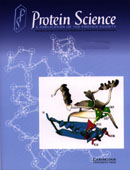Crossref Citations
This article has been cited by the following publications. This list is generated based on data provided by
Crossref.
Bloom, George S
2001.
The UNC-104/KIF1 family of kinesins.
Current Opinion in Cell Biology,
Vol. 13,
Issue. 1,
p.
36.
Klopfenstein, Dieter R.
Tomishige, Michio
Stuurman, Nico
and
Vale, Ronald D.
2002.
Role of Phosphatidylinositol(4,5)bisphosphate Organization in Membrane Transport by the Unc104 Kinesin Motor.
Cell,
Vol. 109,
Issue. 3,
p.
347.
Schoch, Conrad L.
Aist, James R.
Yoder, Olen C.
and
Gillian Turgeon, B.
2003.
A complete inventory of fungal kinesins in representative filamentous ascomycetes.
Fungal Genetics and Biology,
Vol. 39,
Issue. 1,
p.
1.
Singh, Suren
Madlala, Andreas M.
and
Prior, Bernard A.
2003.
Thermomyces lanuginosus: properties of strains and their hemicellulases.
FEMS Microbiology Reviews,
Vol. 27,
Issue. 1,
p.
3.
Borkovich, Katherine A.
Alex, Lisa A.
Yarden, Oded
Freitag, Michael
Turner, Gloria E.
Read, Nick D.
Seiler, Stephan
Bell-Pedersen, Deborah
Paietta, John
Plesofsky, Nora
Plamann, Michael
Goodrich-Tanrikulu, Marta
Schulte, Ulrich
Mannhaupt, Gertrud
Nargang, Frank E.
Radford, Alan
Selitrennikoff, Claude
Galagan, James E.
Dunlap, Jay C.
Loros, Jennifer J.
Catcheside, David
Inoue, Hirokazu
Aramayo, Rodolfo
Polymenis, Michael
Selker, Eric U.
Sachs, Matthew S.
Marzluf, George A.
Paulsen, Ian
Davis, Rowland
Ebbole, Daniel J.
Zelter, Alex
Kalkman, Eric R.
O'Rourke, Rebecca
Bowring, Frederick
Yeadon, Jane
Ishii, Chizu
Suzuki, Keiichiro
Sakai, Wataru
and
Pratt, Robert
2004.
Lessons from the Genome Sequence ofNeurospora crassa: Tracing the Path from Genomic Blueprint to Multicellular Organism.
Microbiology and Molecular Biology Reviews,
Vol. 68,
Issue. 1,
p.
1.
Rivera, Susan B.
Koch, Steven J.
Bauer, Joseph M.
Edwards, J. Matthew
and
Bachand, George D.
2007.
Temperature dependent properties of a kinesin-3 motor protein from Thermomyces lanuginosus.
Fungal Genetics and Biology,
Vol. 44,
Issue. 11,
p.
1170.
Gangavaram, Lakshmi Prasanna
Mchunu, Nokuthula
Ramakrishnan, Priya
Singh, Suren
and
Permaul, Kugen
2009.
Improved electroporation-mediated non-integrative transformation of Thermomyces lanuginosus.
Journal of Microbiological Methods,
Vol. 77,
Issue. 2,
p.
159.
Yadav, Saumya
and
Kunwar, Ambarish
2021.
Temperature-Dependent Activity of Motor Proteins: Energetics and Their Implications for Collective Behavior.
Frontiers in Cell and Developmental Biology,
Vol. 9,
Issue. ,

